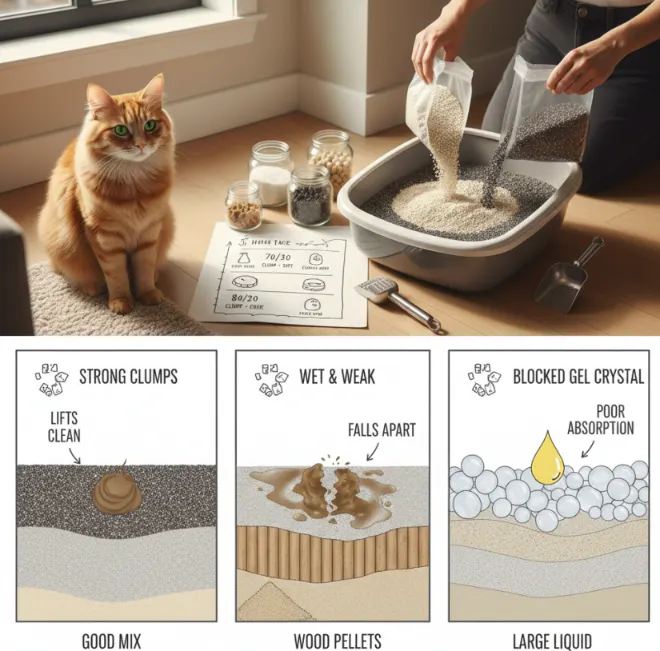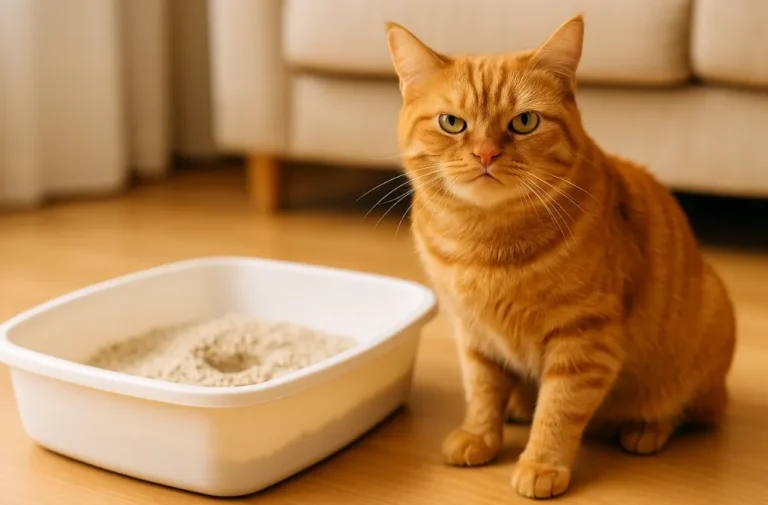
Is your cat skipping the litter box? Finding messes behind the couch or on your clean clothes can be super annoying. But don’t get mad. Cats don’t do this to be mean. When they avoid their litter box, they’re trying to tell you something. Maybe they’re stressed, hurting, or just don’t like their bathroom setup. Figuring out what’s wrong is the first step to fixing it. This guide will help you understand why your cat’s acting up and how to make your home clean and happy again. For good solutions, check out pet care products from a company like BASTET (Tianjin) Pet Products Co., Ltd.
Why Is Your Cat Avoiding the Litter Box?
Cats don’t skip the litter box to bug you. They’re super clean animals. Their instinct is to bury their waste. If they stop using the box, something’s off. You need to play detective. Look for hints. Does the mess happen in one spot? Is it just pee or both? These are clues. Ignoring them makes things worse. Being patient and careful is the way to go. Start by checking your cat’s health.
Should You Visit the Vet?
Yes, definitely. This is the first thing to do. A sudden change in litter box habits can mean your cat’s sick. If peeing hurts, they might think the box is the problem. That’s a common reason they avoid it.
Lots of health issues could be the cause. A Urinary Tract Infection (UTI) makes peeing painful. Bladder stones or crystals can hurt too and are serious. Even arthritis can make it hard for older cats to climb into the box.
When you go to the vet, bring details. Write down how often the messes happen, how much pee there is, and how your cat acts. This helps the vet figure out what’s wrong. Ruling out health problems is the key step before looking at other fixes.
What Are the Common Litter Box Complaints?
If the vet says your cat’s healthy, check the litter box. Think like your cat. Something about their bathroom isn’t right. The problems usually come from three things: the litter, the box, or the area around it.
Is the Litter the Problem?
The stuff in the box matters a lot. Cats have sensitive paws and noses way stronger than ours.
Scented litter can be a big no. You might like a flowery smell, but to your cat, it’s like a stinky cloud. It can bother their breathing and hide their natural scent. Plain, unscented litter is usually better.
Texture is important too. Some cats love fine, sandy litter that doesn’t clump. Others like soft, clumping kinds. If you switch types suddenly, your cat might say nope. It’s like changing your comfy rug to rough rocks.
Dust is another issue. Dusty litter makes clouds that sting a cat’s eyes and nose. Nobody wants to use a dusty bathroom. Low-dust or dust-free litter is nicer for your cat and your house.
Also, think about how the litter works. If it doesn’t keep smells away, the box gets gross. Your cat won’t like that. A product like Clumping Bentonite Cat Litter is great for this. It makes hard clumps that trap wet and smells, so the box stays clean and cozy with every scoop.
Is the Litter Box Itself the Issue?
The box matters just as much as the litter. Ask if it’s a good “home” for your cat’s bathroom.
Size is a big deal. A tiny box is no fun. Your cat needs space to walk in, turn around, and dig without feeling squished. A good box should be at least one and a half times your cat’s length from nose to tail.
Cleanliness is a must. Cats are picky. Would you use a dirty toilet? Scoop the box at least once a day, better twice. Wash it with mild soap regularly. If you have more cats, you’ll need to clean more often.
Where the box is matters too. If it’s in a noisy spot, like by the washer, your cat might feel scared. Putting it near their food or water is a bad idea. Cats don’t like to eat where they go. Pick a quiet, private spot for the box.
Could Stress Be a Factor?
Cats love routine. Changes can stress them out and cause litter box trouble. Even a perfect box won’t help if your cat’s upset.
Look at what’s new. Did you move? Get a new pet or baby? Is there a stray cat outside? These can make your cat nervous. In homes with lots of cats, one might bully another and block the box. The scared cat might pee in a quiet spot, like your closet.

How Can You Create a Litter Box Your Cat Loves?
To fix this, make the litter box a place your cat likes. Start simple. Have enough boxes. For homes with multiple cats, use one box per cat, plus one extra. This stops fights and gives choices.
Try different setups. Put boxes in quiet spots. Maybe use one with a cover for privacy and one without for an open view. Keep them super clean. That’s the biggest thing you can do.
Pick the right litter. Skip strong smells and choose something quiet and good at stopping odors. Clumping Bentonite Cat Litter is a favorite because it’s soft on paws and traps mess and smells well. It makes cleaning easy for you and nice for your cat.
For stress, make your cat feel safe. Give them high spots to climb, places to hide, and lots of playtime. A calming pheromone diffuser can help too.
How Do You Clean Accidents Properly?
Cleaning messes right is super important. If you don’t, the smell pulls your cat back to the same spot. Don’t use ammonia cleaners. Ammonia smells like pee and can make your cat go there again.
Use an enzymatic cleaner. These are made to break down the smelly bits in cat pee. Regular cleaners just hide the smell for a bit. Enzymatic ones get rid of it for good.
About BASTET (Tianjin) Pet Products Co., Ltd.
When picking pet stuff, go with a company that cares. BASTET (Tianjin) Pet Products Co., Ltd. is all about pets. They focus on making great cat litter and other pet supplies. Check their website for details or to get in touch.
FAQ
Q1: My cat was fine before. Why the sudden accidents?
A: Sudden changes often mean health trouble. Older cats might have sore joints or infections. See a vet first. Home changes like new pets can also cause this.
Q2: How many boxes do I really need?
A: Simple math: one per cat, plus one extra. Two cats need three boxes. This stops fights over bathrooms.
Q3: What litter works best?
A: Most cats like plain, soft litter without perfume. Clumping litter works well for controlling smells and is gentle on paws.
Q4: Nothing works! What now?
A: If you’ve tried health checks, new litter, and better boxes, contact a cat behavior expert. Never punish your cat – it makes things worse.
Q5: How to stop bed peeing?
A: This usually means stress. Rule out health issues first. Make the bed less comfortable with a plastic cover. Add playtime and cozy hiding spots to help your cat feel safe.






